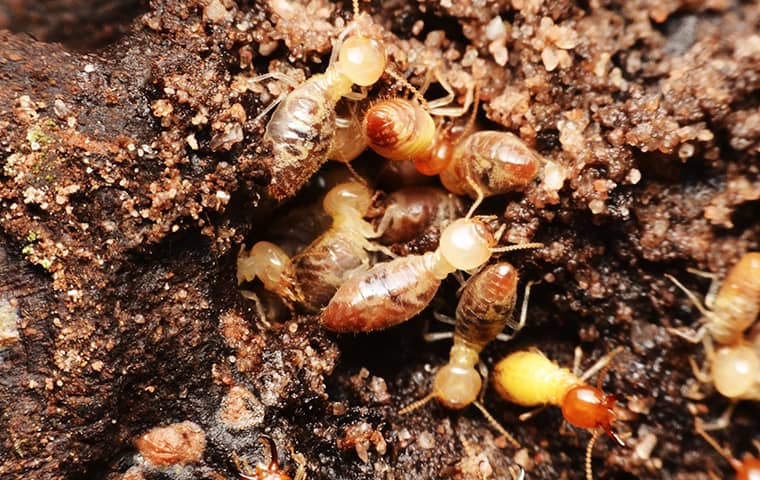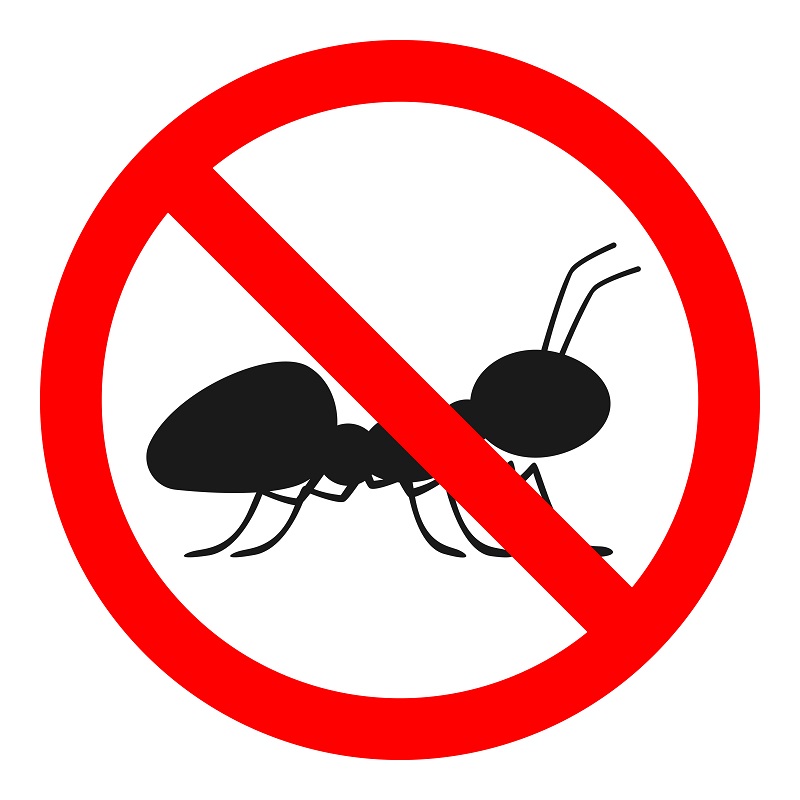Total Ant Control: Approaches and Services to Defeat Ant Issues
Wiki Article
Environmental Impact of Pest Control: Balancing Performance With Sustainability
The ecological influence of pest control is a crucial problem that requires a delicate equilibrium in between attaining effectiveness in guaranteeing and handling bugs sustainability of our communities. From the use of dangerous chemicals that permeate into our soil and water to the unintended repercussions on non-target varieties, the effects of standard parasite control techniques are far-ranging.Damaging Chemicals in Insect Control
The use of unsafe chemicals in parasite control postures significant environmental and wellness threats that necessitate careful factor to consider and reduction approaches. Herbicides, chemicals, and pesticides are commonly used to remove pests, however their widespread application can lead to unintentional repercussions. These chemicals can infect dirt, water resources, and the air, influencing not just the targeted pests however additionally advantageous insects, wild animals, and people.
To resolve these risks, integrated pest management (IPM) techniques are being advertised as an extra lasting choice. IPM entails a mix of techniques such as biological control, habitat manipulation, and the targeted use pesticides as a last hope (ant control mooresville nc). By adopting a holistic method to pest control, we can minimize the ecological and health and wellness impacts connected with harmful chemicals while successfully handling pest populations
Influence on Non-Target Types
Considering the unplanned effects of bug control methods, the influence on non-target types is a vital aspect that needs extensive evaluation. While bug control steps intend to target specific parasites, other organisms in the environment may be unintentionally affected. Non-target types, consisting of beneficial bugs, birds, creatures, and even plants, can endure direct or indirect harm from chemical applications or biological control techniques.Chemicals can have lethal or sub-lethal effects on non-target varieties. Insecticides designed to combat a particular bug parasite might hurt pollinators like bees or all-natural predators such as ladybugs. Additionally, chemical residues can gather in the atmosphere, impacting non-target microorganisms in time. Similarly, biological control agents, if not species-specific, can pose threats to unexpected targets, disrupting the ecological equilibrium.
To alleviate the influence on non-target types, integrated parasite administration (IPM) methods that stress an all natural method to pest control are advised. These methods prioritize using environmentally pleasant practices, minimizing damage to useful microorganisms while properly handling pest populaces. Performing extensive risk evaluations and keeping track of the results of insect control initiatives are important action in safeguarding non-target types and promoting general ecological community health and wellness.
Dirt and Water Contamination
Unplanned ecological repercussions of insect control approaches prolong beyond influencing non-target varieties, with considerable effects for soil and water contamination - termite control. Pesticides, herbicides, and chemical fertilizers made use of in parasite control can seep into the soil and contaminate groundwater, posing a hazard to both marine and earthbound ecological communities.Water contamination is one more critical concern connected with bug control methods. Overflow from agricultural areas treated with pesticides can bring these chemicals into nearby water bodies, impacting water organisms and water high quality. Pollutants in water sources can have far-reaching repercussions, affecting not only marine life yet likewise human health with the consumption of polluted water or water microorganisms. To alleviate soil and water contamination from pest control tasks, incorporated insect management techniques that prioritize sustainability and minimize chemical inputs are important.
Air Pollution From Pesticide Use
Direct exposure to airborne pesticides throughout farming applications positions a substantial problem for air contamination control actions. They can volatilize into the air and type unpredictable organic substances (VOCs) and various other airborne pollutants when pesticides are sprayed onto plants - ant control services. These chemicals can contribute to the development of ground-level ozone, a significant part of smog that can have detrimental effects on human wellness, plant performance, and overall air quality. In addition, pesticide drift, where pesticides are lugged by the wind to unintentional locations, can cause the contamination of nearby ecological communities and water bodies.
Approaches for Lasting Insect Control
In the realm of agricultural practices, carrying out lasting parasite control techniques is extremely important for preserving environmental equilibrium and protecting plant returns. Sustainable insect control emphasizes the use of ecologically pleasant approaches to manage pest populaces properly while minimizing harm to non-target microorganisms and communities. Integrated Insect Administration (IPM) is a commonly embraced method that integrates organic, cultural, physical, and chemical control approaches to attain lasting parasite monitoring options.Plant rotation and diversity are likewise effective strategies to interrupt pest life cycles and develop less favorable problems for pests to thrive. Inevitably, by integrating these lasting insect control approaches, farmers can accomplish a balance in between pest monitoring efficiency and ecological stewardship.
Final Thought
In conclusion, the ecological impact of parasite control methods have to be thoroughly taken into consideration to balance efficiency with sustainability. Harmful chemicals utilized in parasite control can result in dirt and water contamination, air contamination, and harm non-target types - termite control services. It is essential to carry out lasting insect control approaches to minimize these negative impacts on the setting and advertise a healthier community for future generationsBy taking on a holistic method to pest control, we can lessen the ecological and wellness impacts associated with unsafe chemicals while efficiently handling pest populaces.

To mitigate the air contamination triggered by chemical use, it is crucial to adopt incorporated pest administration strategies that focus on the usage of non-chemical insect control approaches, such as crop turning, natural killers, and resistant crop selections. Sustainable bug control emphasizes the use of eco friendly methods to handle pest populations properly while reducing injury to non-target organisms and ecosystems. Integrated Parasite Administration (IPM) is a widely embraced technique that combines biological, social, physical, and chemical control approaches to achieve long-lasting pest monitoring services.
Report this wiki page